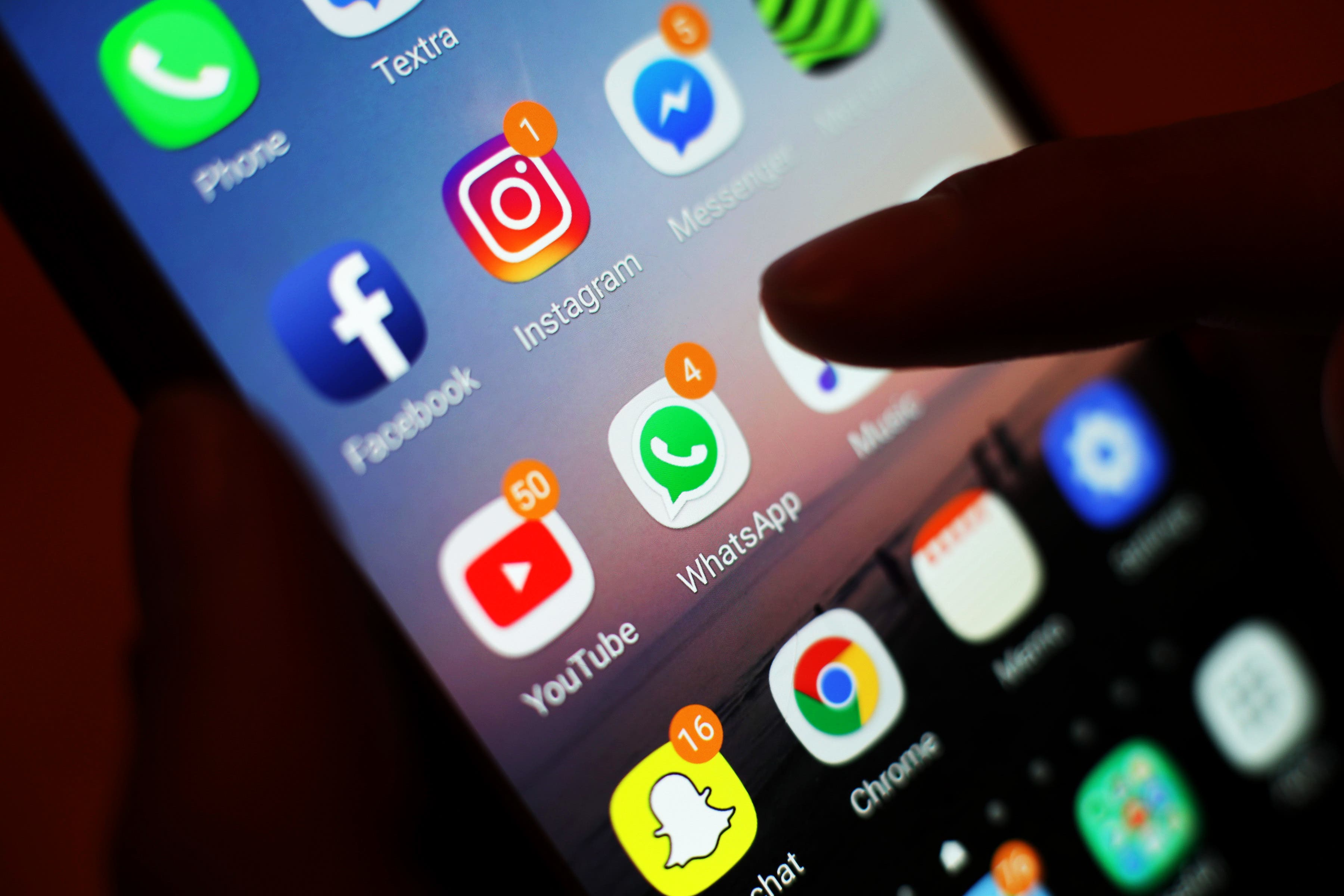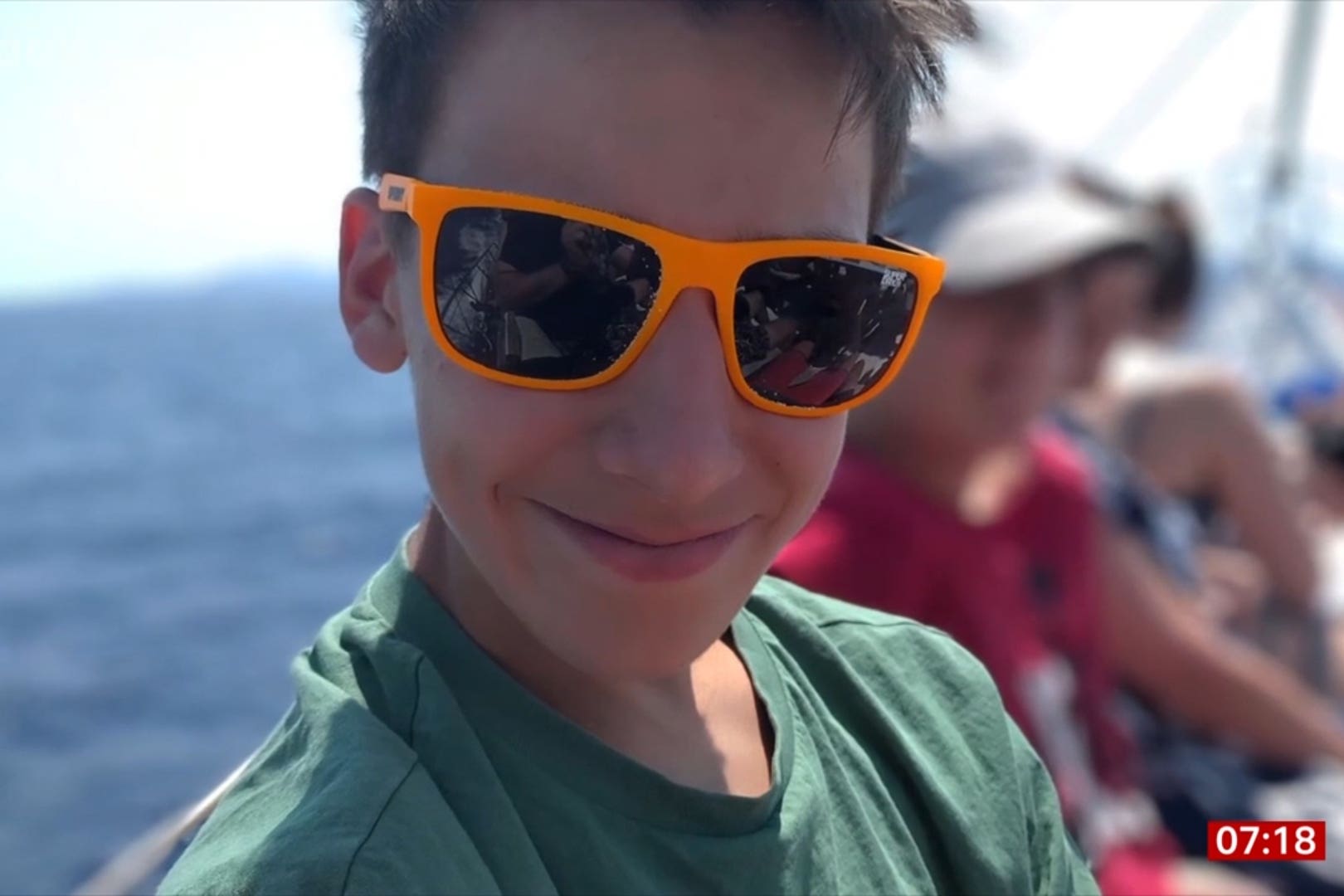- News
- UK
- Crime
A third of parents don’t believe the government and tech companies are doing enough to prevent online blackmail
Holly EvansFriday 28 November 2025 12:28 GMT open image in galleryParents do not believe tech companies are doing enough to protect children from online blackmail (Yui Mok/PA) (PA Wire)
open image in galleryParents do not believe tech companies are doing enough to protect children from online blackmail (Yui Mok/PA) (PA Wire)
For free real time breaking news alerts sent straight to your inbox sign up to our breaking news emails
Sign up to our free breaking news emails
Sign up to our free breaking news emails
 Email*SIGN UP
Email*SIGN UPI would like to be emailed about offers, events and updates from The Independent. Read our Privacy notice
Nearly one in 10 parents say their child has been blackmailed online, while one in five (21 per cent) know a child that has experienced it, with threats ranging from the release of intimate images to details about their personal life.
Despite this, the child protection charity NSPCC also found that two in five UK parents say they rarely or never talk to their children about the subject.
Reasons given for not talking about online blackmail included 32 per cent fearing their child would overreact, and 25 per cent stating their child’s reluctance to talk about sensitive topics.
In March, the National Crime Agency said that British teenage boys were increasingly being blackmailed by Nigerian crime gangs posing as young women in a surge of online sexual extortion.
Officials warned that criminals are targeting boys as young as 14 over Snapchat and Instagram – tricking them into sending explicit images before demanding payments of around £100.
While most victims of child sexual exploitation are female, 90 per cent of sextortion victims are boys aged 14 to 17.
Two teenage boys have taken their own lives after being blackmailed online in recent years. Dinal De Alwis, 16, killed himself in Sutton, south London, in October 2022 after being targeted by a man threatening to send two nude images to “all his followers”. Murray Downey, 16, died after being targeted with sextortion on Instagram in 2023.
 open image in galleryMurray Dowey took his own life aged 16 after being targeted by in a sextortion scam (BBC Breakfast/PA)
open image in galleryMurray Dowey took his own life aged 16 after being targeted by in a sextortion scam (BBC Breakfast/PA)The NPCC survey, which received responses from more than 2,500 parents, found that one in three parents felt that tech companies and the government were failing in their duty to protect children from online blackmail.
Instead, parents felt that charities and schools were doing much more to help prevent harm.
Talking about the work tech companies do to protect children, one parent said: "They have no interest whatsoever. As long as they get their money from marketing, that’s good enough for them."
Rani Govender, policy manager at the NSPCC said: “These findings show the scale of online blackmail that is taking place across the country, yet tech companies continue to fall short in their duty to protect children.
"With one in three parents saying that tech companies and the Government are failing to prevent young people from experiencing online blackmail, it's clear that urgent action is needed. Children deserve to be safe online, and that must be built into the very fabric of these platforms, not bolted on after harm has already been done.
"While we push for systematic change, it’s crucial that parents feel equipped to have these difficult conversations with their children. Knowing how to talk about online blackmail in an age-appropriate way and creating an environment where children feel safe to come forward without fear of judgement can make all the difference.”
If you are experiencing feelings of distress, or are struggling to cope, you can speak to the Samaritans, in confidence, on 116 123 (UK and ROI), email [email protected], or visit the Samaritans website to find details of your nearest branchIf you are based in the USA, and you or someone you know needs mental health assistance right now, call or text 988, or visit 988lifeline.org to access online chat from the 988 Suicide and Crisis Lifeline. This is a free, confidential crisis hotline that is available to everyone 24 hours a day, seven days a week.If you are in another country, you can go to www.befrienders.org to find a helpline near you
